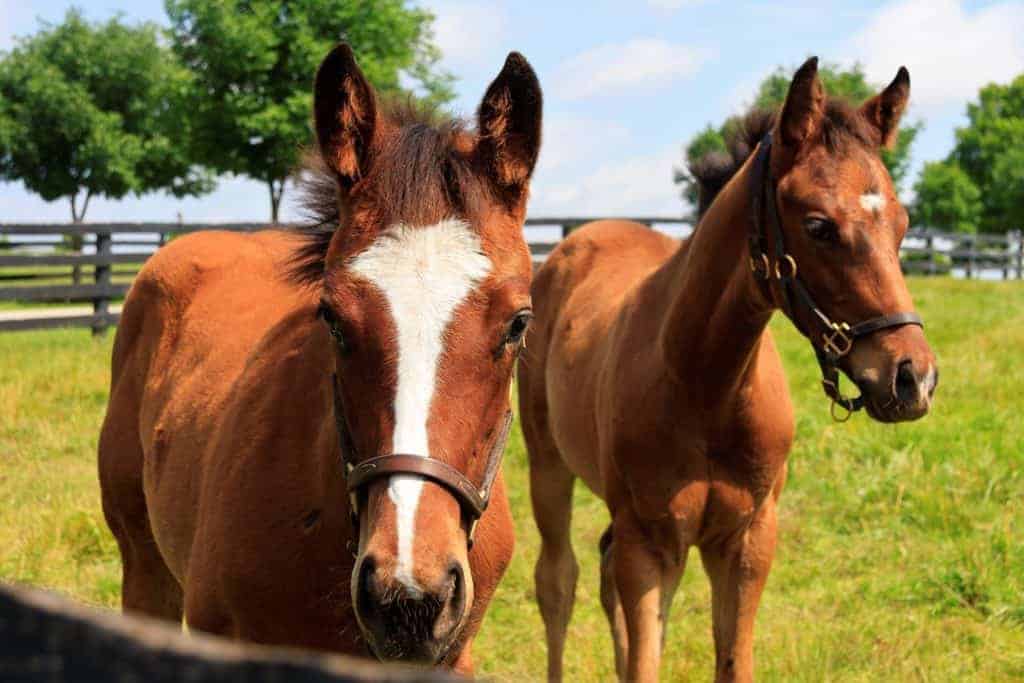
A Day in the Life of an Equine Veterinary Technician
Taylor Equine Hospital assistant Ali Harman’s dream job involves clinic cases, farm calls, and foal watch.

Taylor Equine Hospital assistant Ali Harman’s dream job involves clinic cases, farm calls, and foal watch.

Dini hopes his current research projects will help improve the understanding of equine placental development.

A Kentucky Thoroughbred farm is reaping the benefits of healthier mares and foals after making horse pasture renovations over the past year with guidance from University of Kentucky personnel.
The symposium and dinner will take place Thursday, Sept. 20, from 4-7:30 p.m., at Malone’s Prime, in Lexington, Kentucky.

Routine horse vaccinations are one of the easiest and most efficient ways to protect equids’ health against potentially fatal infectious diseases.

Researchers are working to develop a fertility predictor test for colts and fillies to help breeders and buyers make informed decisions and potentially even help improve evaluations during breed inspections.

Mares receiving the synthetic hormone reFSH went from anestrus (not cycling) to ready to breed within about a week, researchers found in a recent study.

Learn more about these trace minerals that are vital to horse health.

Veterinarians retrieve most foreign bodies from the mare uterus manually; however, more challenging cases, might benefit from the use of hysteroscopy tools and equipment.

Learn about equine oviduct anatomy and function and the role oviduct pathology on fertility from of Maria R. Schnobrich, VMD, Dipl. ACT, of Rood & Riddle Equine Hospital’s LeBlanc Reproduction Center.

Researchers have learned that foals and dams appear to prefer looking at each other with their left eyes and keeping each other in their left field of vision in most situations.

A mare’s attraction to a stallion—specifically, to his body odors, or “MHC”—affects pregnancy success rates. And, researchers found, mares appear to prefer stallions with MHCs that differ from their own.

Iron deficiencies are rare in horses, especially in those with access to good-quality pasture and hay.

Carleigh Fedorka, PhD, a postdoctoral scholar at the University of Kentucky Gluck Equine Research Center, started the campaign to fund her study “Hormone therapy: Suppressing your mare’s estrous, or suppressing her immune system?”

When veterinarians detected pregnancy loss in horses early enough for mares to be rebred, 57.3% delivered a live foal the following spring. Of those, mares 3 to 8 years old had a 73% live-foaling rate.

Horse owners might want to have their mares’ ovaries surgically removed for a variety of reasons, including to prevent pregnancy, get rid of tumors, or, most commonly, resolve behavioral issues.
Stay on top of the most recent Horse Health news with
"*" indicates required fields